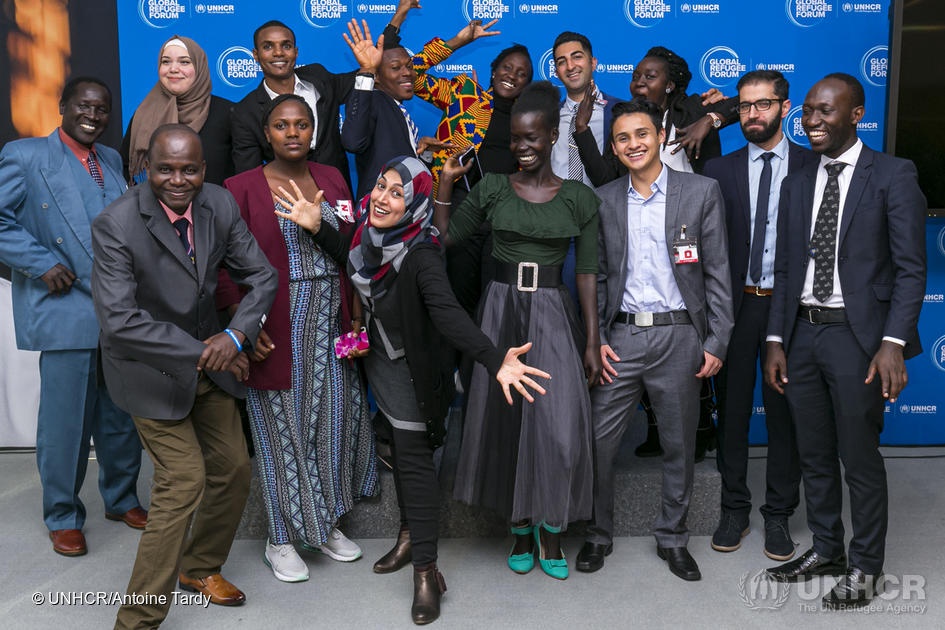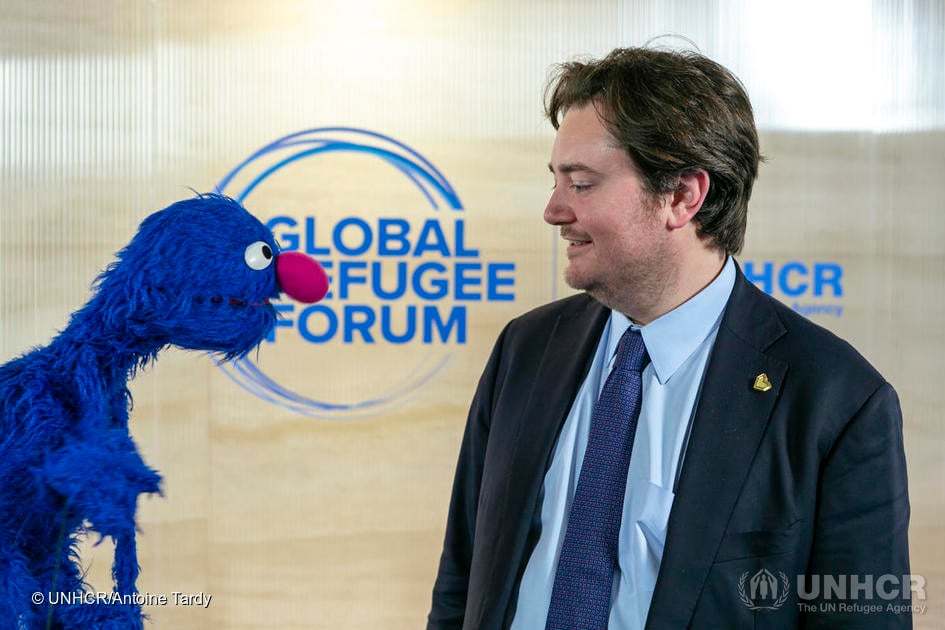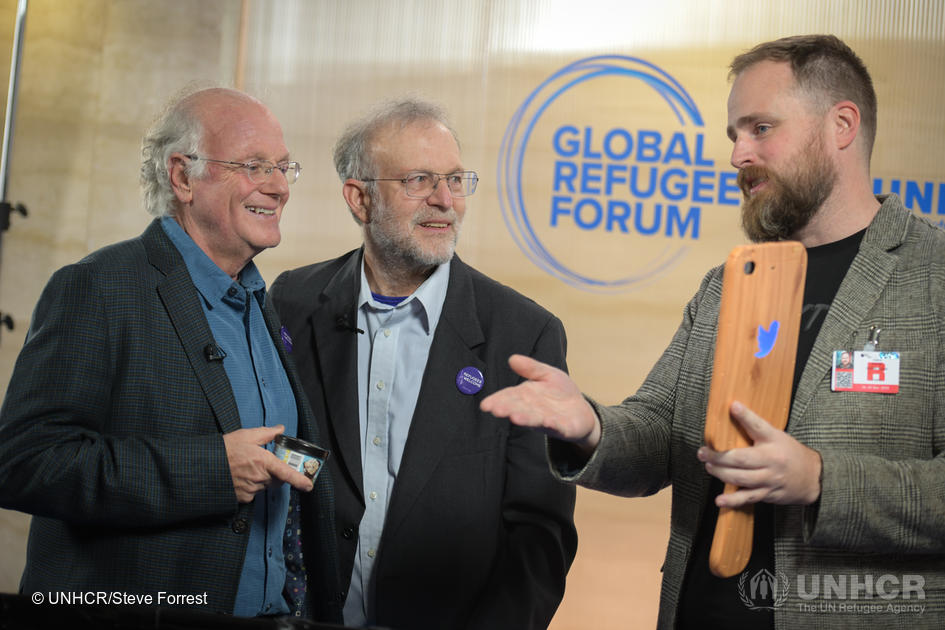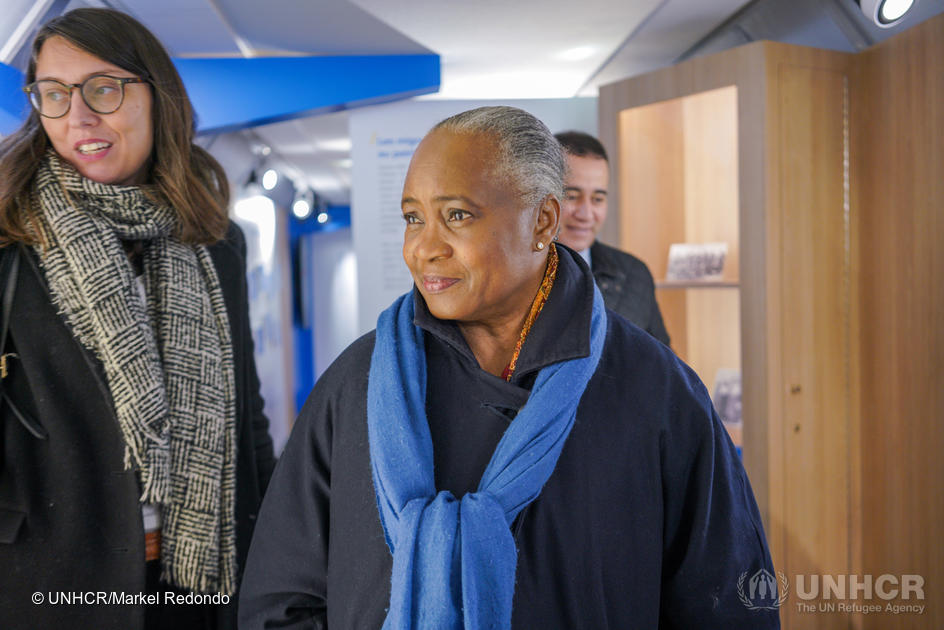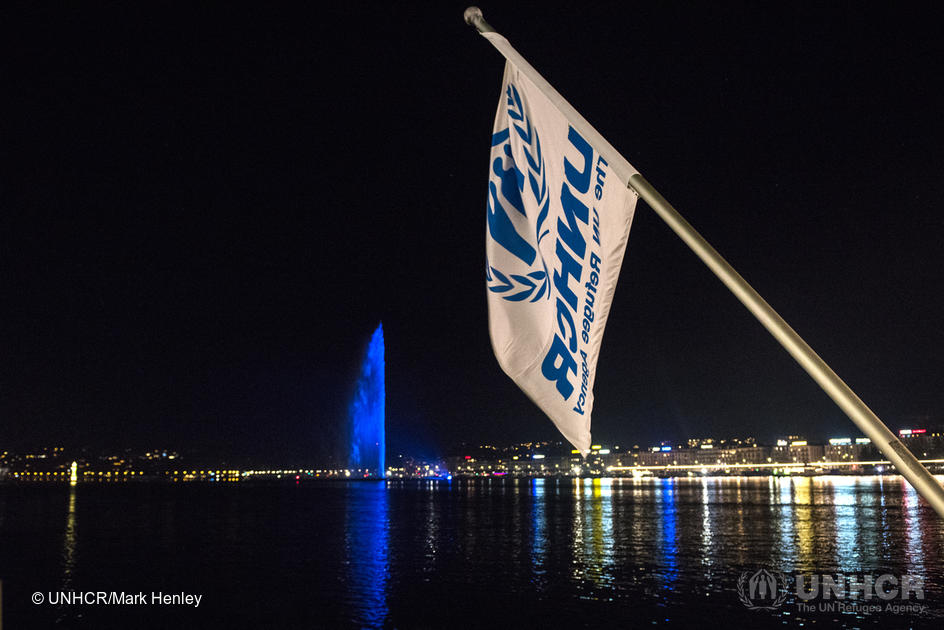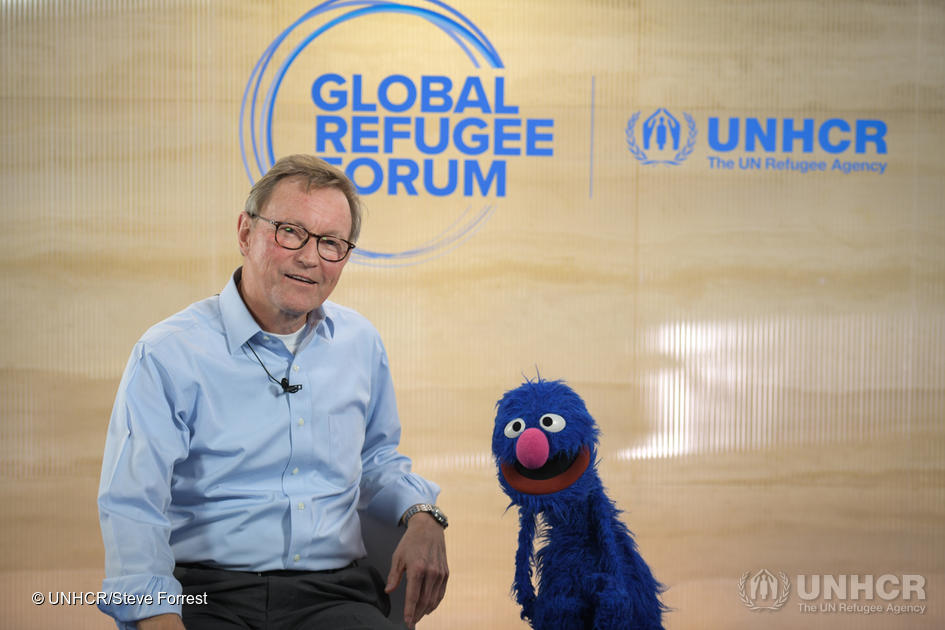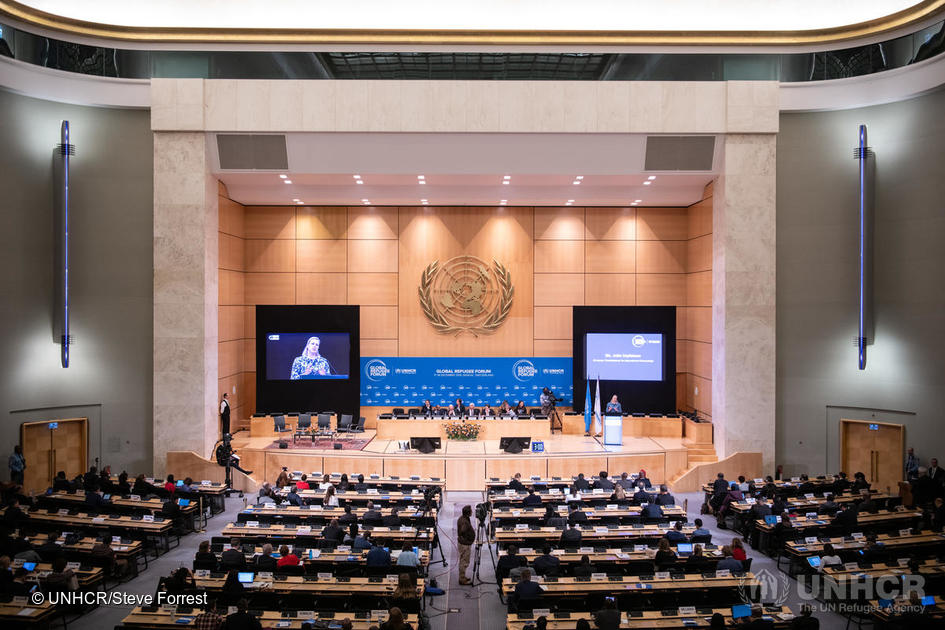Historic forum yields pledges of jobs, education for refugees
First-ever Global Refugee Forum wraps up with over 770 pledges to boost opportunities for refugees and their hosts.
A historic meeting in Geneva wrapped up today with wide-ranging and substantial commitments to help millions of refugees and the communities they live in worldwide, including important pledges of new long-term support for their inclusion.
“I want to salute the efforts pledged by many countries — both donors and by host countries — and by business leaders, civil society and refugees themselves, to redouble efforts in support of refugee inclusion, self-reliance and solutions,” UN High Commissioner Filippo Grandi told the closing session at the first-ever Global Refugee Forum.
“The energy and commitment that has resonated over the last three days is a testimony that despite a difficult global environment, there is a shared commitment to protecting those fleeing in search of refuge.”
The Forum met in Geneva at a moment when 70.8 million people are forcibly displaced worldwide, including 25.9 million refugees. It sought to reboot responses to the millions uprooted by wars and persecution as well as the communities that host them – most in developing countries.
As the gathering drew to a close late Wednesday, over 770 pledges had been made by heads of state and government, UN leaders, international institutions, development organizations, business leaders and civil society representatives among the 3,000 attendees.
“This has the makings of a success. Making it a success is incumbent on all of us.”
They promised job opportunities, school places for refugee children, new government policies, solutions like resettlement, clean energy, infrastructure and better support for host communities and countries. Further pledges are expected in the near future.
The World Bank Group announced US$2.2 billion in development funding for refugees and hosting communities, as well as a separate funding window to boost the private sector and create jobs.
A similar announcement from the Inter-American Development Bank promised US$1 billion. In addition, a broad range of states, businesses and other stakeholders pledged financial support for refugees and their host communities of over US$2 billion.
They aim to boost support for inclusion and long-term development needs in host communities – recognition that for the majority of refugees worldwide, exile frequently stretches out for years or even decades.
More than US$250 million in pledges by business underlined the growing role of the private sector in mobilizing vital resources to support millions of refugees worldwide. At least 15,000 jobs will be available to refugees through these initiatives. There will also be some 125,000 hours per year of pro bono legal counselling.
Grandi urged all participants to sustain the momentum and deliver on their promises: “This has the makings of a success. Making it a success is incumbent on all of us,” he said.
The Forum is a key element of the Global Compact on Refugees, a framework for more predictable and equitable responsibility-sharing affirmed by the UN General Assembly a year ago.
Somalia’s Prime Minister, Hassan Ali Khayre, drew on his personal experience as a refugee to speak for the needs of those uprooted by wars, and the imperative to create the conditions that allow them to return home.
“We must focus on addressing the root causes and the drivers of displacement.”
“We must focus on addressing the root causes and the drivers of displacement,” he told the Forum. “In this regard we must invest unreservedly in improving good governance, the security sector, economic recovery and social services, which are critical elements for peace and stability,” he said.
Refugee participation was key throughout. Around 80 men and women from Africa, the Americas, Asia and the Middle East attended dozens of panels and events, ranging from sessions on education, sustainable energy and sport to livelihoods and mental health.
“Looking ahead, it is clear that we can achieve so much when we work collaboratively and as equal partners,” refugee co-sponsor Tina Dixson, who sought asylum in Australia in 2012 as a queer human rights activist, told the closing session.
“We call on all of you – all of us – to make sure our next steps are considered, and meaningfully build on some of the key pledges and contributions that have been made,” Dixson said.
“Looking ahead, it is clear that we can achieve so much when we work collaboratively.”
Wenasa Alaraba of the refugee student delegation drew cheers from the floor as she called for greater investment in education for refugees, who face dwindling opportunities as they progress through the education system.
“Education transforms, and in that transformation we gain skills and knowledge, we amplify our potential and we find our pathways to self-reliance,” she said. “Education makes it possible not only for us to survive but also to thrive.”
Discussions at the Forum focused on six key areas: Arrangements for burden and responsibility sharing; education; jobs and livelihoods; energy and infrastructure; solutions; and protection capacity.
But not all was hard policy. Much-loved Sesame Street muppet Grover drew broad smiles as he interviewed participants ranging from refugees and government ministers to business leaders and UN chiefs.
A refugee boxer with dreams of competing at the Tokyo2020 Olympics threw flurries of punches as he shadow boxed at the Palais des Nations, while others played football outside.
“When refugees are empowered,” said refugee Foni Joyce Vuni, capturing a mood of optimism at the Forum, “they not only change the countries where they are seeking asylum, but also their countries of origin.”
For a complete list of pledges, see the dashboard here.
For more highlights from the Global Refugee Forum, see UNHCRs blog from day 1, day 2 and day 3.
Share on Facebook Share on Twitter


